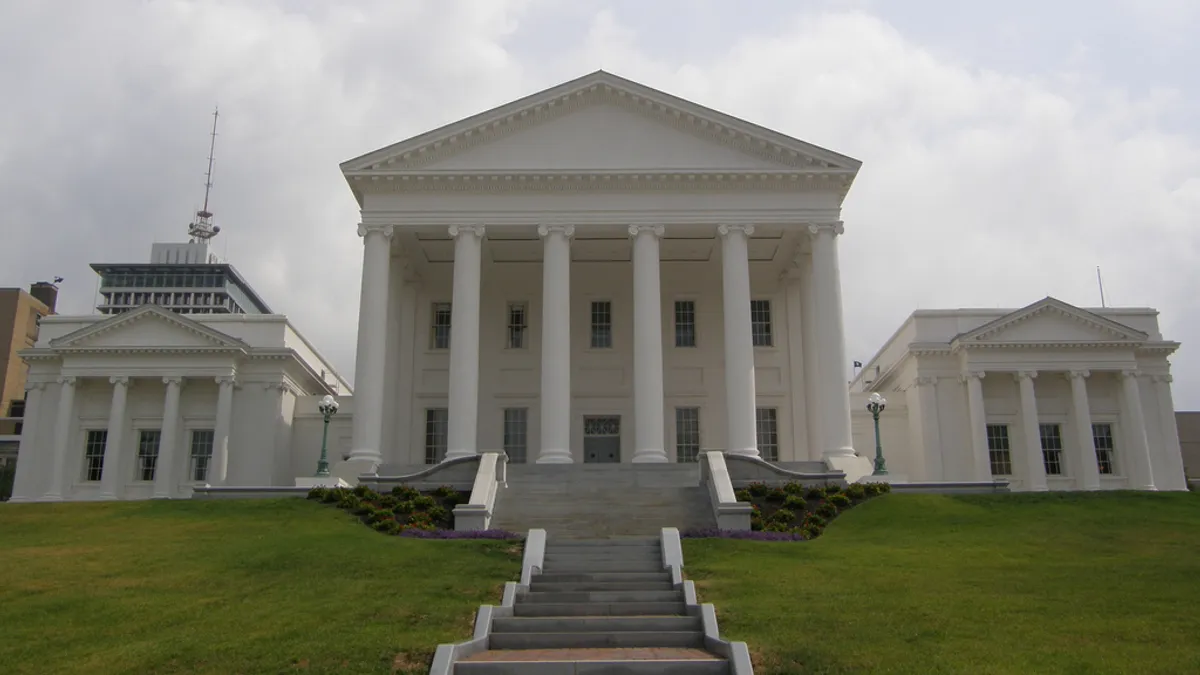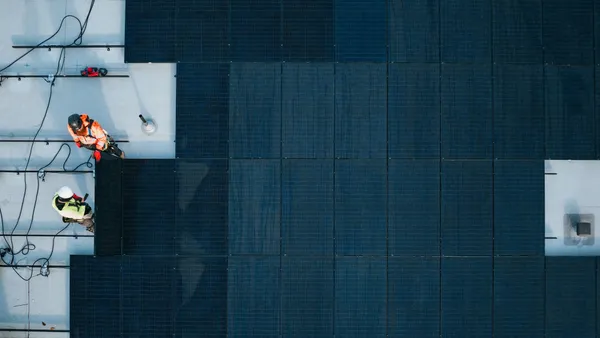Dive Brief:
-
A coalition of Virginia lawmakers filed comments Nov. 4 requesting revisions to a series of new State Corporation Commission (SCC) rules, intended to facilitate the implementation of the state's Clean Economy Act.
-
The rules, they say, violate the spirit of the law, which was intended to open energy markets to new participants and "unleash a competitive clean energy market that creates maximum number of local jobs." Alongside other stakeholders, the coalition has requested that the corporation commission adopt more aggressive interim goals for the deployment of energy storage, simplify the permitting process, and increase transparency during the bidding process.
-
Virginia utilities generally support the SCC's proposed rules, saying the graduated approach to energy storage deployment more closely mirrors the development of the technology and plans for procurement.
Dive Insight:
While industry advocates and lawmakers support, in general, a series of new rules facilitating the implementation of the state's Clean Economy Act, the parties disagree about the speed with which local utilities should be required to deploy new energy storage assets.
The Virginia Clean Economy Act, adopted during the state's 2020 general assembly, among other things, requires Appalachian Power Company and Dominion Energy subsidiary Virginia Electric Power Company to construct or acquire 400 MW and 2,700 MW of new energy storage resources, respectively, by 2035. The act also requires the State Corporation Commission to adopt regulations to facilitate the deployment of these resources.
In September, the commission proposed a series of rules outlining the procedures for bidding and permitting the new storage facilities, and suggested a graduated approach to achieving the storage targets. Appalachian Power, for example, would be expected to acquire 25 MW of storage by 2025, 150 MW by 2030, and the full 400 MW by 2035. For Dominion, the commission set interim goals of 250 MW by 2025 and 1,200 MW by 2030.
The utilities expressed support for the storage targets, with Dominion spokesperson Rayhan Daudani citing the importance of energy storage "as we continue the rapid growth of renewable in Virginia." However, industry groups, including the U.S. Energy Storage Association, Virginia Advanced Energy Economy, the Maryland, D.C. and Virginia Solar Energy Industries Association, and the Solar Energy Industries Association filed joint comments in which they urged the commission to adopt more aggressive interim targets.
"Virginia captures the greatest benefits of the deployment through early and consistent investments in a diversity of business and ownership models at all levels of interconnection and ensures diversity and equity in customer engagement, investment and benefits," the comments, filed on Nov. 2, state.
The industry groups' comments were followed by similar remarks by a coalition of Democratic state lawmakers — Sens. Jennifer McClellan and Scott Surovell, and Delegates Rip Sullivan, Jay Jones, Mark Keam and Alfonso Lopez. In comments dated Nov. 4, the legislators expressed concern that rules would not achieve the economic goals established by the Clean Economy Act.
"The General Assembly passed the Virginia Clean Economy Act with the clear intent to take aggressive and immediate action to make Virginia a national leader in energy storage and clean energy jobs," Sen. McClellan said. "These proposed rules slow-walk storage targets, fail to put teeth into the competitive procurement process, create unnecessary roadblocks to third-party deployment of energy storage, and fail to meet the legislation’s goal of 10% of storage being behind the meter. The SCC is misreading the clear legislative intent of the Virginia Clean Economy Act."
The coalition called on the commission to require a third-party administrator during bidding on future energy storage projects to increase transparency, and expressed concern that detailed permitting requirements recommended in the proposed rules would prevent small third-party developers from entering the market, potentially limiting job growth. Citing comparisons in the solar industry, the lawmakers pointed out that distributed generation represents 64% of the solar workforce.
"We are concerned that costs of compliance for these administrative and legal requirements are competitively prohibitive," the legislators wrote. "We respectfully recommend the Commission limit its review of behind-the-meter storage projects to only what is required by law."













